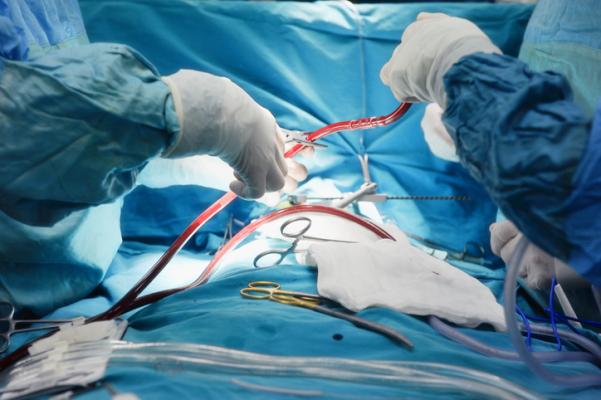
Credit: Getty Images
March 3, 2022 – Spontaneous coronary artery dissection (SCAD), a tear in an artery supplying blood to the heart, is a common cause of serious or fatal heart attacks that occur in women under age 50.
Although the cause of SCAD is unknown, risk factors include female sex, recent childbirth, irregular growth of cells in artery walls (fibromuscular dysplasia), history of migraine headaches, depression/anxiety, and the use of hormones in oral contraceptives or infertility treatments.
Now, researchers at Massachusetts General Hospital (MGH) have identified a potential genetic underpinning of SCAD: mutations in genes that control the production of fibrillar collagen, the most abundant protein in the extracellular matrix or “scaffolding” that gives shape, strength, and stability to blood vessels.
They describe their findings in a study published in JAMA Cardiology.
“This shows us that the extracellular matrix, the structural part of the blood vessel, is important in this disorder, specifically the collagenous part of that matrix,” says Mark E. Lindsay, MD, PhD, a investigator specializing in genetic arterial disease at MGH.
Although there are currently no therapies that can help generate or restore collagen in blood vessels, the discovery provides a road map for researchers investigating SCAD, and could lead to the development of new therapies or strategies for preventing spontaneous artery dissection in at-risk individuals.
The multidisciplinary MGH SCAD Program was founded within the Corrigan Women’s Heart Health Program at MGH by Malissa Wood, MD and her colleagues in 2013. The Program provides a holistic approach to the care of SCAD patients and incorporates cardiac, vascular, and clinical genetic evaluations plus collaboration with cardiac rehabilitation team members, obstetrician-gynecologists, psychologists, radiologists and patients and their families. Hundreds of patients have received care at the MGH SCAD Program and have been enrolled in the MGH SCAD Research Registry used in this study.
“Our patients are highly motivated to help us better understand SCAD and enthusiastically participate in this important genetic research,” Wood says.
In collaboration with the laboratory of Pradeep Natarajan, MD, MMSc, director of preventive cardiology at MGH, Lindsay and colleagues used the genetic technique known as whole-exome sequencing, which looks at the region of the human genome involved in the production and regulation of proteins. They compared the exomes of 130 women and men with SCAD with those of 46,468 people without SCAD.
They identified rare genetic variants in fibrillar collagen genes that together occurred at a 17-fold higher level than a background of 2506 other genes found in coronary arteries.
In addition, they found that individuals with SCAD were more likely to have these so-called “disruptive” (abnormal) rare variants within fibrillar collagen genes compared with those without SCAD.
The discovery was further supported by evidence that mice with inactive copies of the most common gene variants identified in SCAD cases had increased risk for arterial dissection and enlargement than those of wild-type mice, with resulting changes in collagen in the blood vessels. This effect was especially pronounced in female mice.
“Our findings have implications for genetic testing of patients with SCAD and other arterial dissections, suggesting that it may be helpful to add genes for some additional collagen isoforms to current test panels,” Lindsay says.
The study was supported by MGH of Cardiology, the Division of Cardiology’s Bioreposity (CVBio), and the Corrigan Women’s Heart Center.
For more information: www.massgeneral.org/
Related content:
Mayo Clinic Study First to Identify Spontaneous Coronary Artery Disease as Inherited


 February 03, 2026
February 03, 2026 









